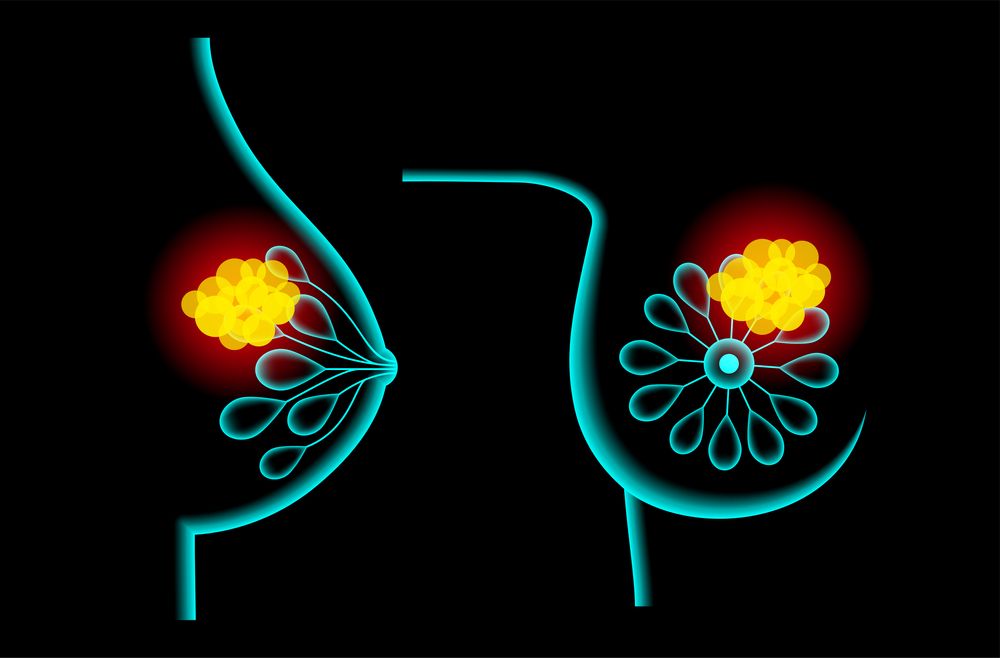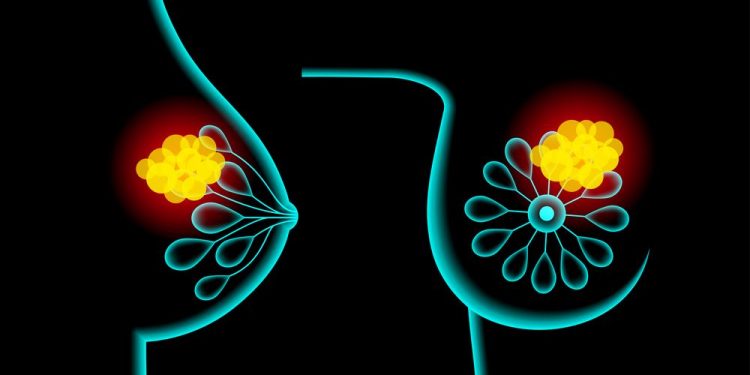Invasive lobular carcinoma, or ILC, is the second most common form of breast cancer. It occurs when abnormal cells develop in the milk glands, called lobules. ILC can occur in women of any age, but it is more common in postmenopausal women. It makes up about 15 percent of all invasive breast cancer cases. It is less common in men, making up less than two percent of all male breast cancer cases.
Lobular carcinoma can look very similar to other types of breast cancer, and that’s why it’s important for women to get regular physical exams, including a mammogram, and talk with their doctor about their family history. But ILC can be harder to diagnose than other forms of breast cancer, because it tends to grow in a line instead of as a mass. That’s why it’s important to seek out a breast specialist for any breast health concerns, and to have regular screenings that include physical exam and mammogram.
Because of their differences, ILC is often treated differently than ductal breast cancer. It is not uncommon for doctors to recommend mastectomy (removal of the breast) rather than lumpectomy when it is diagnosed. This is because ILC tumors may spread to other parts of the body more easily than ductal cancers. Invasive lobular carcinoma also has a tendency to spread to the lining of the gastrointestinal tract or urinary bladder. This is because ILC cells tend to grow linearly, and this causes these tissue pathways to narrow. Patients with ILC often report that they feel constipated or have changes in urination.

Although ILC is less common than ductal cancer, many of the same risk factors for breast cancer apply to both. For example, lifetime exposure to estrogen increases a woman’s risk of both lobular and ductal breast cancer, as does age at first full-term childbirth and parity. Other risks for ILC are a family history of the disease, being premenopausal, and having hormone receptor-positive (HR-positive) tumors.
Researchers are working to better understand the unique characteristics of lobular breast cancer. These efforts are resulting in advances that could help improve treatment options. In particular, recent studies have shown that lobular breast cancers respond differently to hormone therapies than HR-positive ductal cancers. This difference may be because of genetic mutations that drive resistance to these treatments.
While it is important for people to get regular mammograms and have a family history of the disease, the most important preventive measure is to practice healthy habits that promote overall good health. This includes maintaining a healthy weight, eating a balanced diet, exercising regularly and having routine screenings that include a yearly mammogram and magnetic resonance imaging. Getting these screenings is the best way to find the most accurate diagnosis, and to have access to the best treatment available for all breast cancers. BCRF is committed to supporting research that will lead to a cure for all breast cancers. Learn more about our work in lobular breast cancer.









